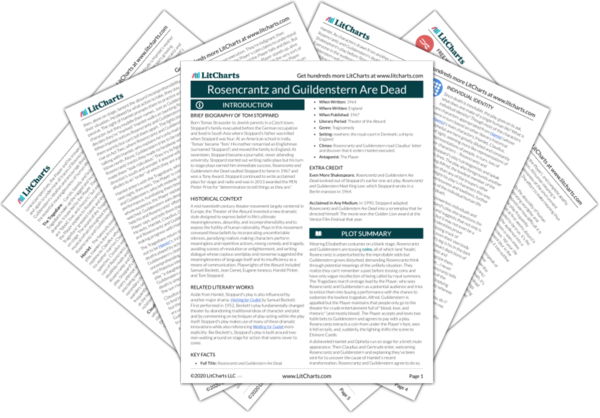Rosencrantz exclaims that the
coin had fallen on tails and throws the coin at
Guildenstern, who catches it. The lights suddenly change the stage from exterior to interior. An alarmed
Ophelia runs on stage followed by a piteously disheveled
Hamlet. They're mute. He scrutinizes her face, then sighs. They exit.
Claudius and
Gertrude enter and Claudius address Rosencrantz and Guildenstern as "Rosencrantz and Guildenstern" and he, then Gertrude, speak their original lines from
Hamlet explaining that they sent for the two to entreat them, Hamlet's dear friends, to find out what has caused Hamlet's recent transformation of character. Rosencrantz and Guildenstern respond with their original lines from
Hamlet agreeing to do so. As they're leaving, they bump into
Polonius who informs Claudius that the ambassadors from Norway have returned and then exits, rambling mid-speech. Claudius and Gertrude exit too.
